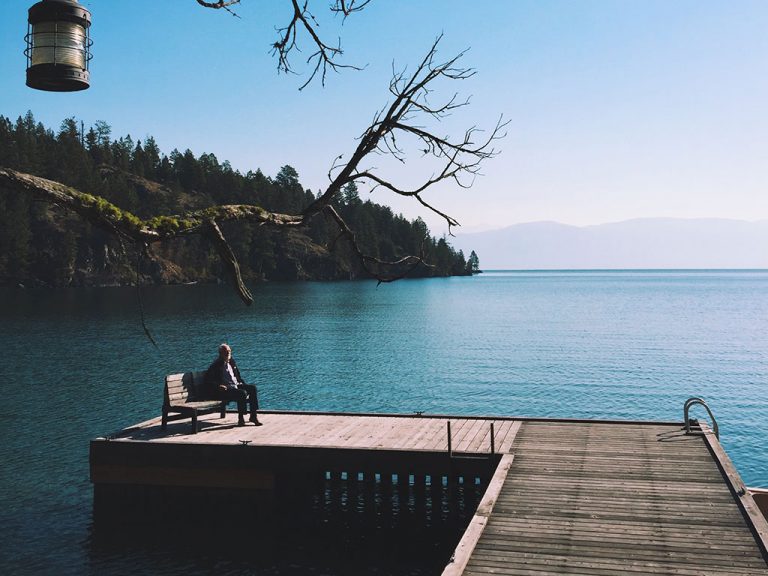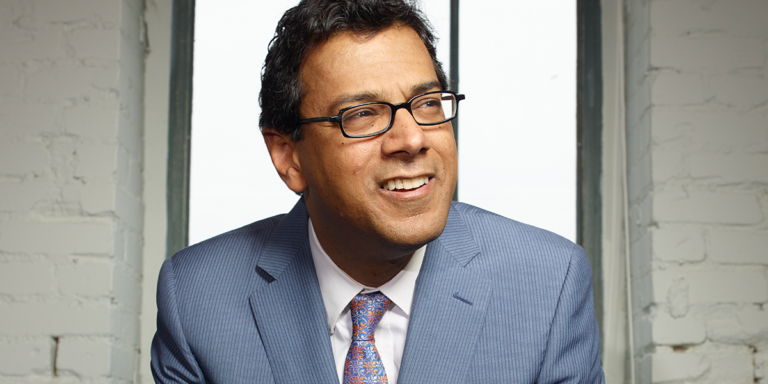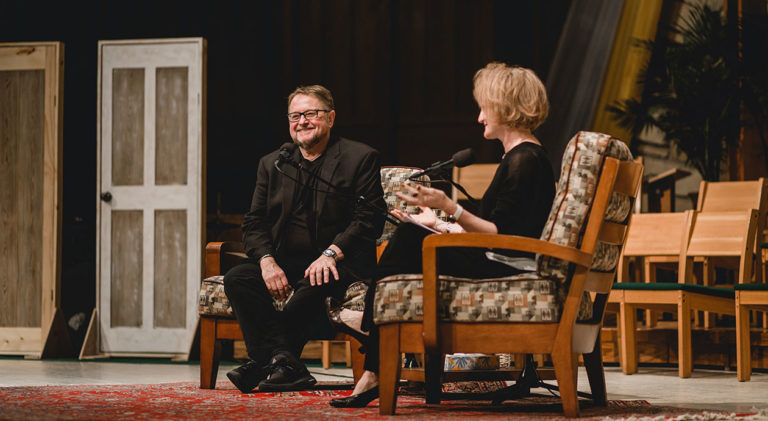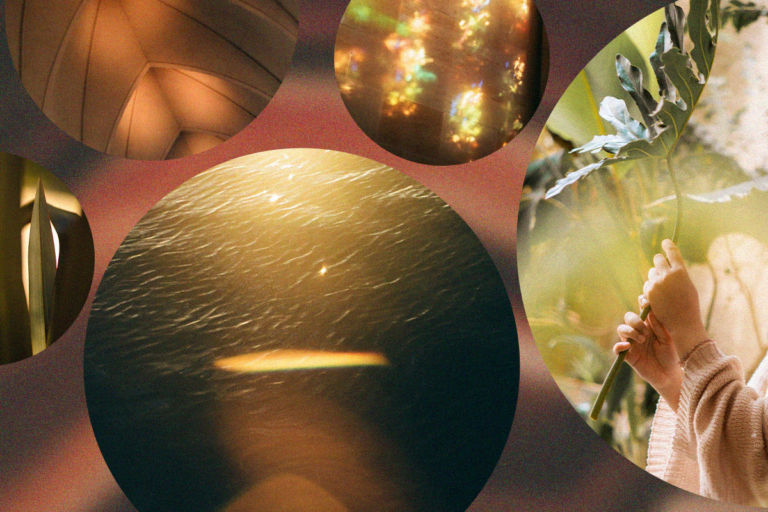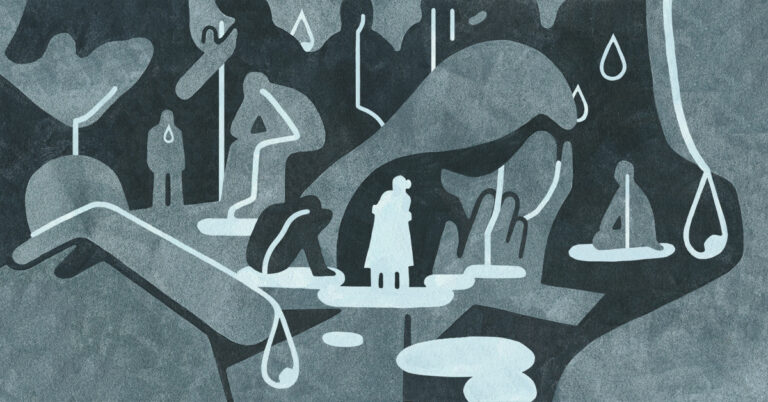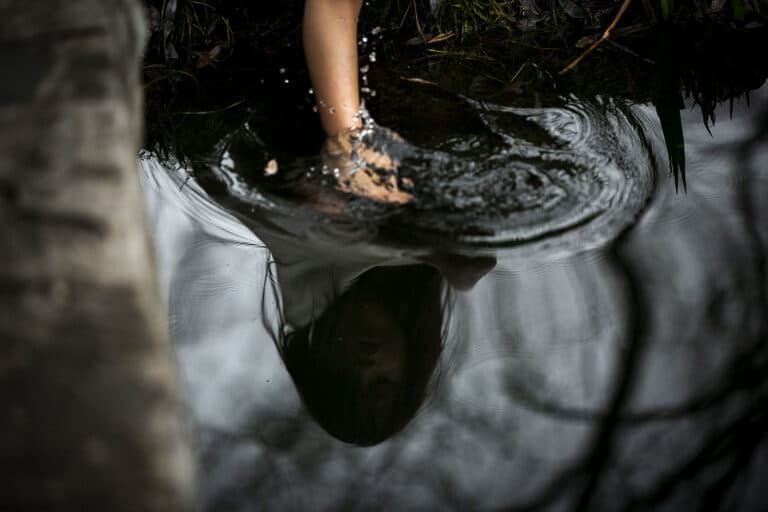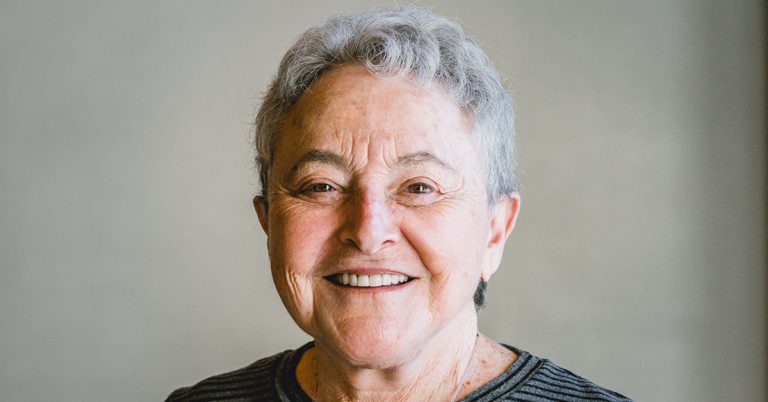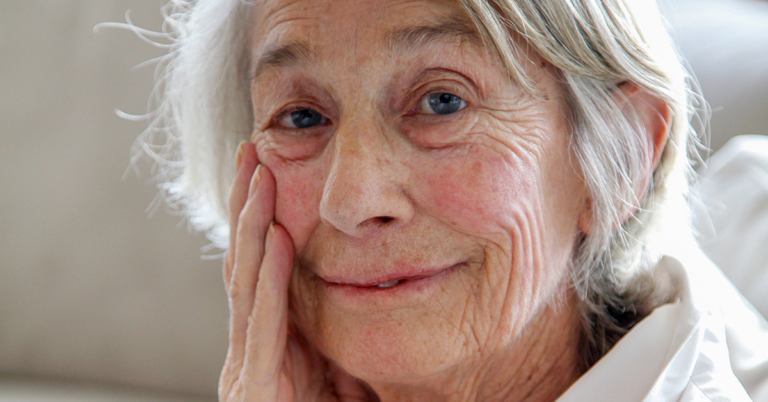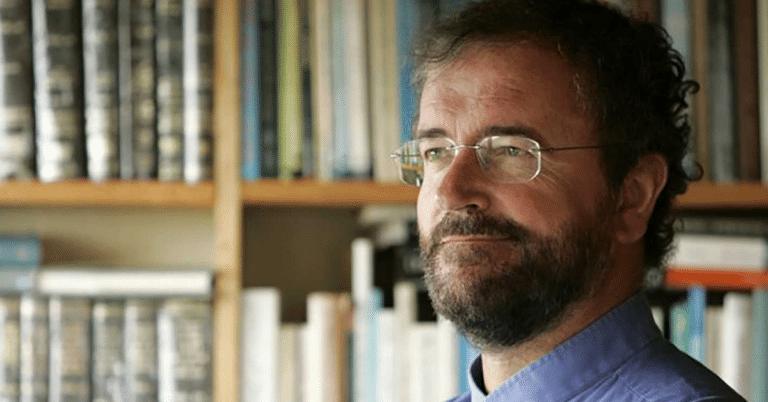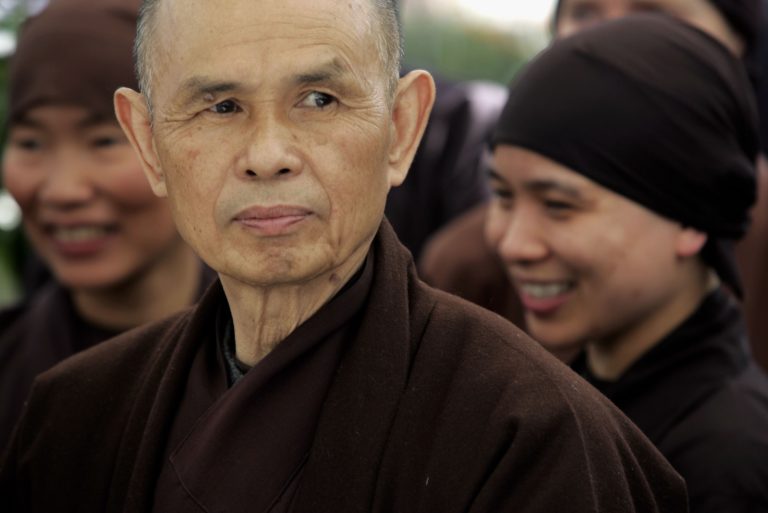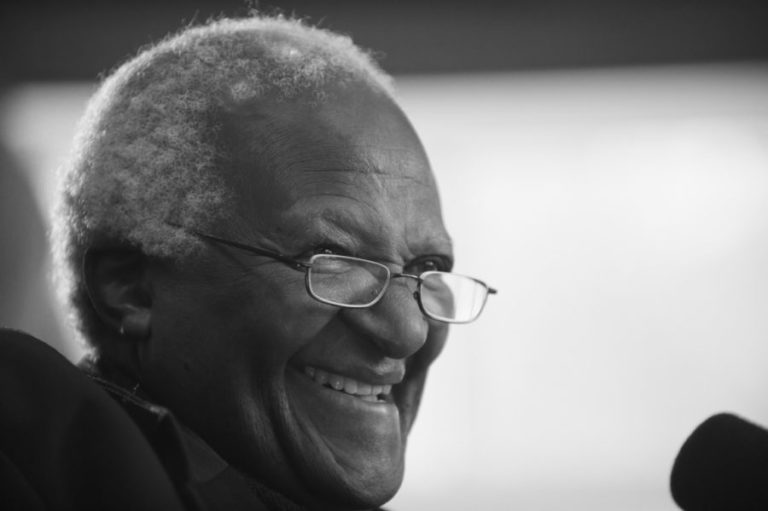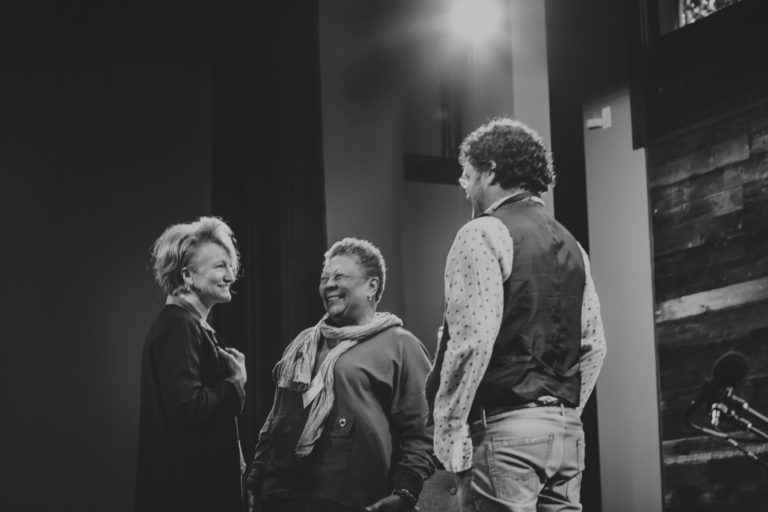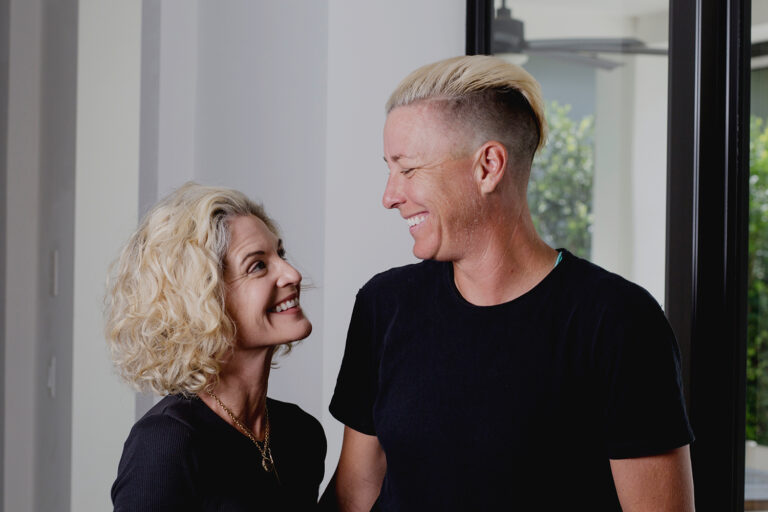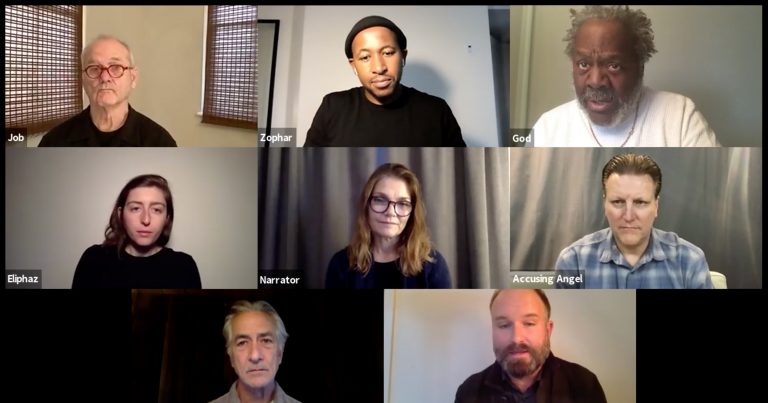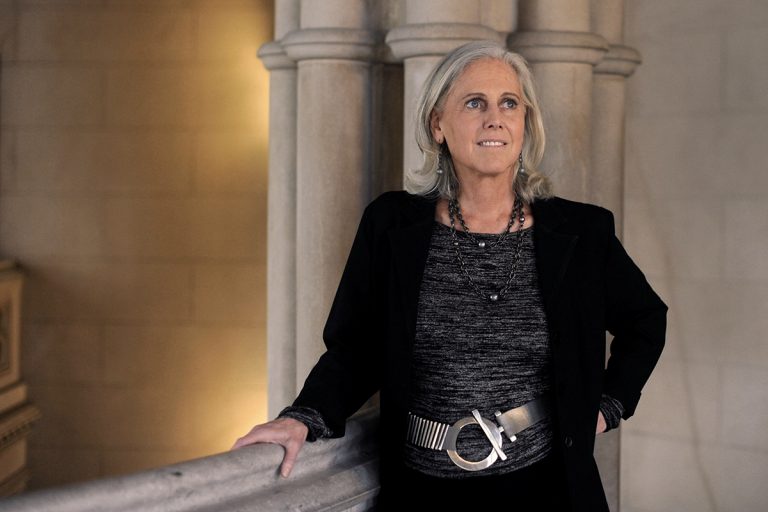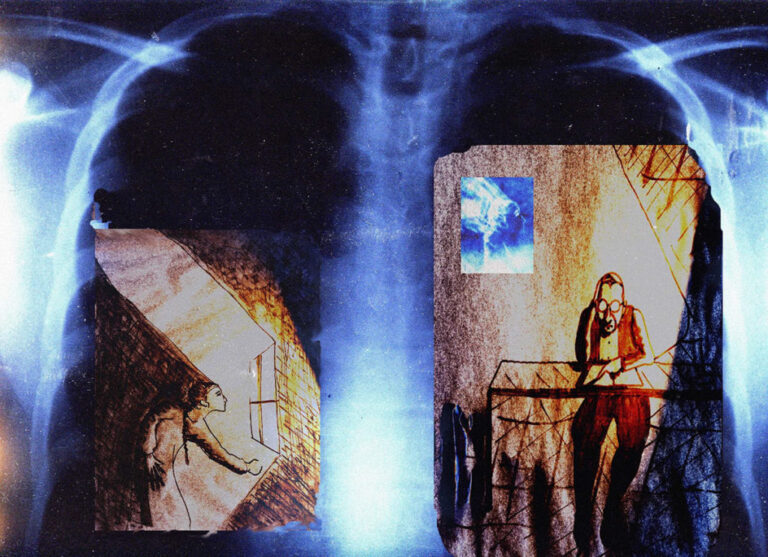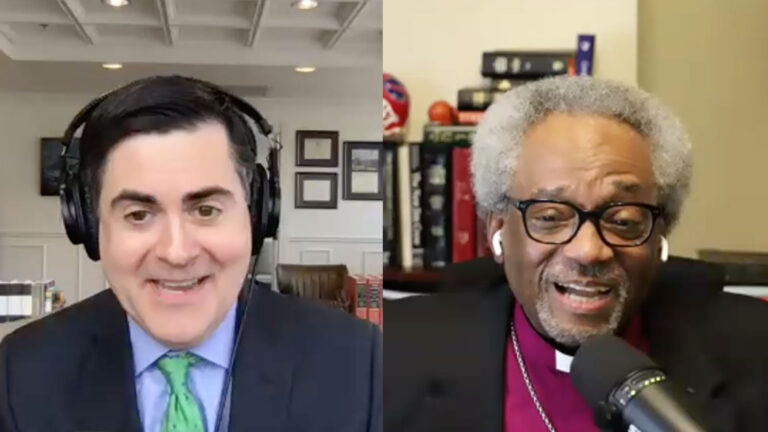Walter Brueggemann is one of the world’s great teachers about the prophets who both anchor the Hebrew Bible and have transcended it across history. He translates their imagination from the chaos of ancient times to our own. He somehow also embodies this tradition’s fearless truth-telling together with fierce hope — and how it conveys ideas with disarming language. “The task is reframing,” he says, “so that we can re-experience the social realities that are right in front of us, from a different angle.”
Public Theology Reimagined
Public theology is about the virtues that accompany the work of theology, not just the ideas. It means connecting grand religious ideas with messy human reality. It means articulating religious and spiritual points of view to challenge and deepen thinking on every side of every important question.
Featured Items
“Prayers are tools not for doing or getting, but for being and becoming.” These are words of the late legendary biblical interpreter and teacher Eugene Peterson. At the back of the church he pastored for nearly three decades, you’d be likely to find well-worn copies of books by Wallace Stegner or Denise Levertov. Frustrated with the unimaginative way he found his congregants treating their Bibles, he translated the whole thing himself and that translation has sold millions of copies around the world. Eugene Peterson’s literary biblical imagination formed generations of pastors, teachers, and readers. His down-to-earth faith hinged on a love of metaphor and a commitment to the Bible’s poetry as what keeps it alive to the world.
View
- List View
- Standard View
- Grid View
87 Results
Filters
We are strange creatures. It is hard for us to speak about, or let in, the reality of frailty and death — the elemental fact of mortality itself. In this century, western medicine has gradually moved away from its understanding of death as a failure — where care stops with a terminal diagnosis. Hospice has moved, from something rare to something expected. And yet advances in technology have made it ever harder for physicians and patients to make a call to stop fighting death — often at the expense of the quality of this last time of life. Meanwhile, there is a new longevity industry which resists the very notion of decline, much less finitude.
Fascinatingly, the simple question which transformed the surgeon Atul Gawande’s life and practice of medicine is this: What does a good day look like? As he has come to see, standing reverently before our mortality is an exercise in more intricately inhabiting why we want to be alive. This conversation evokes both grief and hope, sadness at so many deaths — including our species-level losses to Covid — that have not allowed for this measure of care. Yet it also includes very actionable encouragement towards the agency that is there to claim in our mortal odysseys ahead.
We humans have this drive to erect barriers between ourselves and others, Luis Alberto Urrea says, and yet this makes us a little crazy. He is an exuberant, wise, and refreshing companion into the deep meaning and the problem of borders — what they are really about, what we do with them, and what they do to us.
The Mexican-American border was as close and personal to him as it could be when he was growing up — an apt expression of his parents’ turbulent Mexican-American divorce. In his writing and in this conversation, he complicates every dehumanizing stereotype of Mexicans, “migrants” — and border guards. A deep truth of our time, Luis insists, is that “we miss each other.” He offers a vision of the larger possibility of our time beyond the terrible tangles of today: that we might evolve the old illusion of the melting pot into a 21st-century richness of “us.” And he delightfully models that messiness and humor will be required.
“I like it much better than ‘religious’ or ‘spiritual’ — to be a seeker after the sacred or the holy, which ends up for me being the really real.”
– Rev. Barbara Brown Taylor
From Krista, about this week’s show:
It’s fascinating to trace the arc of spiritual searching and religious belonging in my lifetime. The Episcopal priest and public theologian Barbara Brown Taylor was one of the people I started learning about when I left diplomacy to study theology in the early 1990s. At that time, she was leading a small church in Georgia. And she preached the most extraordinary sermons, and turned them into books read far and wide. Then in 2006, she wrote Leaving Church — about her decision to leave her life of congregational ministry, finding other ways to stay, as she’s written, “alive and alert to the holy communion of the human condition, which takes place on more altars than anyone can count.”
She’s written other books since, with titles like An Altar in the World, Learning to Walk in the Dark, and Holy Envy: Finding God in the Faith of Others. Being in the presence of Barbara Brown Taylor’s wonderfully wise and meandering mind and spirit, after all these years of knowing her voice in the world, is a true joy. I might even use a religious word — it feels like a “blessing.” And this is not a conversation about the decline of church or about more and more people being “spiritual but not religious.” We both agree that this often-repeated phrase is not an adequate way of seeing the human hunger for holiness. This is as alive as it has ever been in our time — even if it is shape-shifting in ways my Southern Baptist and Barbara’s Catholic and Methodist forebears could never have imagined.
The conversation of this hour always rises as an early experience that imprinted everything that came after at On Being. Dr. Rachel Naomi Remen is one of the wise people in our world. She trained as a doctor in a generation that understood death as a failure of medicine. Yet her lifelong struggle with Crohn’s Disease and her pioneering work with cancer patients shaped her view of life. Becoming whole, she teaches, is not about eradicating our wounds and weaknesses; rather, the way we deal with losses, large and small, shapes our capacity to be present to all of our experiences. That arresting notion, and the distinction Rachel Naomi Remen draws between curing and healing, makes this an urgent offering to our world — of healing we are all called to receive and to give.
Few books have been more eagerly passed from hand to hand with delight in these last years than Robin Wall Kimmerer’s Braiding Sweetgrass. Krista interviewed her in 2015, and it quickly became a much-loved show as her voice was just rising in common life. Robin is a botanist and also a member of the Citizen Potawatomi Nation. She’s written, “Science polishes the gift of seeing, Indigenous traditions work with gifts of listening and language.” An expert in moss — a bryologist — she describes mosses as the “coral reefs of the forest.” Robin Wall Kimmerer opens a sense of wonder and humility for the intelligence in all kinds of life we are used to naming and imagining as inanimate.
A few years ago, Krista hosted an event in Detroit — a city in flux — on the theme of raising children. The conversation that resulted with the Jewish-Buddhist teacher and psychotherapist Sylvia Boorstein has been a companion to her and to many from that day forward. Here it is again as an offering for Mother’s Day — in a world still and again in flux, and where the matter of raising new human beings feels as complicated as ever before. Sylvia gifts us this teaching: that nurturing children’s inner lives can be woven into the fabric of our days — and that nurturing ourselves is also good for the children and everyone else in our lives.
April 28, 2022
Pádraig Ó Tuama
“This fantastic argument of being alive”
Pádraig Ó Tuama is a friend, teacher, and colleague to the work of On Being. But before that was true, Krista took a revelatory trip to meet him at his home in Northern Ireland, a place that has known sectarianism and violent fracture and has evolved, not to perfection, yet to new life and once unimaginable repair and relationship. Our whole world screams of fracture, more now than when Krista sat with Pádraig in 2016. This conversation is a gentle, welcoming landing for pondering and befriending hard realities we are given. As the global educator Karen Murphy, another friend of On Being and of Pádraig, once said to Krista: “Let’s have the humility and the generosity to step back and learn from these places that have had the courage to look at themselves and look at where they’ve been and try to forge a new path with something that resembles ‘together’ … Right now we should be taking these stories and these examples and these places and filling our pockets and our lungs and our hearts and our minds with them and learning deeply.” And that’s what this hour with Pádraig invites.
“Prayers are tools not for doing or getting, but for being and becoming.” These are words of the late legendary biblical interpreter and teacher Eugene Peterson. At the back of the church he pastored for nearly three decades, you’d be likely to find well-worn copies of books by Wallace Stegner or Denise Levertov. Frustrated with the unimaginative way he found his congregants treating their Bibles, he translated the whole thing himself and that translation has sold millions of copies around the world. Eugene Peterson’s literary biblical imagination formed generations of pastors, teachers, and readers. His down-to-earth faith hinged on a love of metaphor and a commitment to the Bible’s poetry as what keeps it alive to the world.
The late poet Mary Oliver is among the most beloved writers of modern times. Amidst the harshness of life, she found redemption in the natural world and in beautiful, precise language. She won the Pulitzer Prize and the National Book Award among her many honors — and published numerous collections of poetry and also some wonderful prose. Krista met with her in 2015 for this rare, intimate conversation. We offer it up anew, as nourishment.
No conversation we’ve ever done has been more beloved than this one. The Irish poet, theologian, and philosopher insisted on beauty as a human calling. He had a very Celtic, lifelong fascination with the inner landscape of our lives and with what he called “the invisible world” that is constantly intertwining what we can know and see. This was one of the last interviews he gave before his unexpected death in 2008. But John O’Donohue’s voice and writings continue to bring ancient mystical wisdom to modern confusions and longings.
The Venerable Thich Nhat Hanh, revered Zen master, teacher, and poet, died on January 22, 2022, in his native Vietnam. Brother Thay, as he was known by his community and students, transmuted what he had experienced of chaos and bloodshed in his country and his life into an ability to speak with equal measures directness and compassion to the many conflicts and bewilderments of contemporary life. Martin Luther King Jr. nominated him for the Nobel Peace Prize. He was a great teacher of the wonderful practice of “walking meditation.” He taught a way of living to face suffering, fear, and violence inside and beyond ourselves and yet to become “fresh, solid, and free.” Krista sat with him for this rare conversation in the early years of this show, and it has touched many. It is astonishing to re-experience the deep, enduring wisdom this monk leaves for our world now.
The remarkable Archbishop Emeritus of Cape Town and Nobel Laureate died in the closing days of 2021. He helped galvanize South Africa’s improbably peaceful transition from apartheid to democracy. He was a leader in the religious drama that transfigured South African Christianity. And he continued to engage conflict well into his retirement, in his own country and in the global Anglican communion. Krista explored all of these things with him in this warm, soaring 2010 conversation — and how Desmond Tutu’s understanding of God and humanity unfolded through the history he helped to shape.
October 28, 2021
Pádraig Ó Tuama and Marilyn Nelson
“So let us pick up the stones over which we stumble, friends, and build altars”
Where to turn to find my place of standing when it feels like the world is on fire? This question surfaced in a public conversation Krista had just a couple of years ago with Pádraig Ó Tuama and Marilyn Nelson, two poet-contemplatives. Pádraig weaves together social healing, poetry, and theology. Marilyn is a lyrical excavator of stories that would rather stay hidden — yet as she coaxes them into the light, they lead to new life. This conversation is a pleasure and balm, and a reminder that the ruptures and unease and reckonings of what we call “this moment” were all before us before the pandemic. Pádraig and Marilyn’s offerings are beyond wise, and distinctly tender and powerful for this now.
Glennon Doyle’s book Untamed has been a sensation of 2020 and beyond, and now she’s launched a new podcast titled with words of hers that have become a cultural force: We Can Do Hard Things. Meanwhile her wife, the soccer icon Abby Wambach, has her own bestselling books and is hosting a new tv show – Abby’s Places on ESPN+. Krista spoke with them before they were quite so much in the public eye together, and it’s a window into the passions that brought them here. They sat together in Seattle at the 2018 summit of Women Moving Millions, a consortium of women testing the meaning and boundaries of philanthropy. And courage was the theme of the day.
“Remember,” Bryan Doerries likes to say in both physical and virtual gatherings, “you are not alone in this room — and you are not alone across time.” With his public health project, Theater of War, he is activating an old alchemy for our young century. Ancient stories, and texts that have stood the test of time, can be portals to honest and dignified grappling with present wounds and longings and callings that we aren’t able to muster in our official places now. It’s an embodiment of the good Greek word catharsis — releasing both insight and emotions that have had no place to go, and creating an energizing relief. And it is now unfolding in the “amphitheater” of Zoom that Sophocles could not have imagined.
The glory that coexists in human life right alongside our weird propensity to choose what is not good for us; the difference between a place of sheer loss and a sacred space for mourning; grace as something muscular amidst the muck and mess of reality. These are some of the places of musing, sweeping perspective, and raw wisdom a conversation with Serene Jones takes us. And after hearing this, you’ll never think in the same way again about Woody Guthrie, or John Calvin, or what a Christian upbringing in Oklahoma might be.
There is a question rolling around even in the most secular of corners: What do religious people and traditions have to teach as we do the work ahead of repairing, renewing, and remaking our societies, our life together? Krista’s conversation this week with Rabbi Ariel Burger, a student of the late, extraordinary Elie Wiesel, delves into theological and mystical depths that are so much richer and more creative than is often imagined even when that question is raised.
December 10, 2020
Bishop Michael Curry & Dr. Russell Moore
Spiritual Bridge People
We’re in a tender spiritual moment, widely feeling our need for re-grounding both alone and together. By way of the Almighty force of Zoom, Krista engages a forward-looking conversation with two religious thinkers and spiritual leaders from very different places on the U.S. Christian and cultural spectrum: Episcopal Bishop Michael Curry and Russell Moore of the Southern Baptist Convention. Through their friendship as much as their words, they model what they preach. The Washington National Cathedral and the National Institute for Civil Discourse brought us all together.
The Pause
Join our constellation of listening and living.
The Pause is a monthly Saturday morning companion to all things On Being, with heads-up on new episodes, special offerings, event invitations, recommendations, and reflections from Krista all year round.
Search results for “”
View
- List View
- Standard View
- Grid View
Filters
